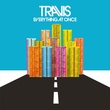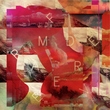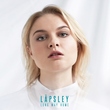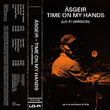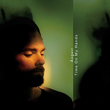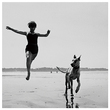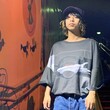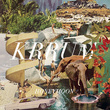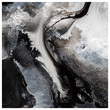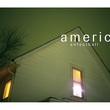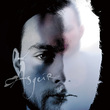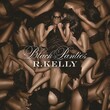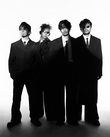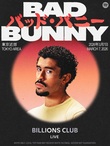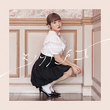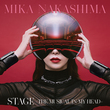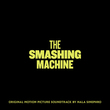[INTERVIEW]
Interview with John Grant, the loveable maverick known for his works with Ásgeir!
Mikiki gets to take a closer look at the life-size image of the sexy lyricist leaping the waves of life
Interviewed and written by: Hiroko Shintani

*This interview took place in March 2016 in the run-up to the artist’s tour to Japan
A lover of both Sergei Rachmaninoff and Yellow*, Grant unsurprisingly possesses a musical aesthetic compatible to both the new wave sounds of the 80s and classical music. He has a deep baritone voice that takes on not only dignity, but also a somewhat sexy and dangerous air. Still coping with the trauma from growing up gay in a conservative community at conservative times, the songs he makes digs deeply into love and sexuality in the most tragicomically manner. John Grant is one avant-garde artist cutting a conspicuous figure of an ‘outsider’.
*Yellow – Swiss electronic band consisting of millionaire industrialist and gambler Dieter Meier and Boris Blank.
John Grant was born in a small town in Michigan, who then from the 90s to the mid-noughties, grew to lead the Denver-based alternative band, The Czars. The band struggled to see the light of success, and after suffering personal issues including drug abuse and alcoholism, there was even a time the band was forced to enter into temporary hiatus. Moving from town to town across the globe and engaging himself in German or Russian translating jobs, Grant finally returned to writing music lured by the old pals of the American folk band Midlake. Grant was 42 years of age when this happened in 2010. Receiving full support from the band, Grant completes his solo debut album, “Queen of Denmark”. The album received great acclaim immediately after the album was released on Bella Union founded by Simon Raymonde, former member of Cocteau Twins, resulting in winning a healthy share of enthusiastic fans across Europe.
Relocating to Reykjavik, Iceland, in 2012, Grant completed his second album “Pale Green Ghosts” (2013) that was co-produced with Biggi Veira (of GusGus). He proceeds to being nominated as the Best International Male Solo Artist of the BRIT AWARDS 2014, which was then followed by his cracking the UK top 5 for the first time with the latest highly-praised album, “Grey Tickles, Black Pressure” released last autumn. A late-bloomer he may be, but Grant is surely enjoying the current abundant blooms of his career.
The Japanese version of “Grey Tickles, Black Pressure” celebrates its belated release just before his performance in the country (April 2016), and was recorded in Texas at the studio owned by the mega-selling producer John Congleton known for hitting the spotlights with his collaborations with St. Vincent or FFS. Dramatic rock ballads introducing classical arrangements are interweaved with dark-toned electro funk, making one wonder if the album are the fruits of the evolutions of his first album rooted in the 70s and the second rooted in the 80s. As a lyricist also, Grant continues to update his own self-portrait in ever sincere brush strokes, mixing the stable and fulfilled present with the turbulent past. We had a quick interview with the artist, via email, not only about the album, but also asking questions that may shed light on the personality and character of this loveable maverick.
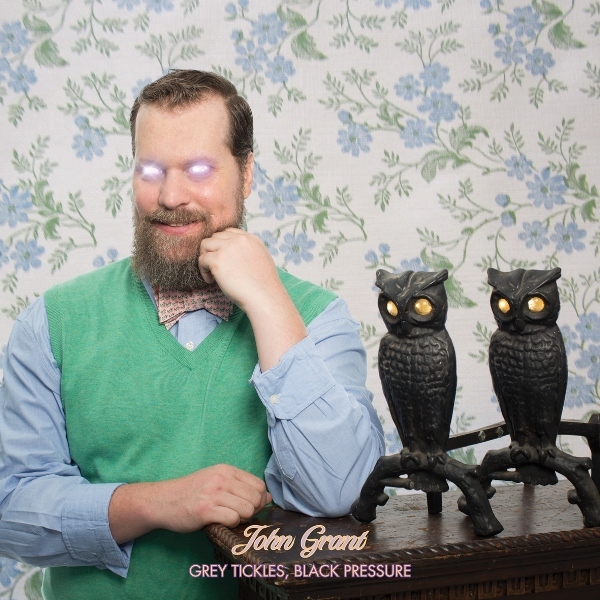
To express clearly, uncensored and truthfully about what it feels like to be a human on this planet
――Your life seems to have reached a certain phase of stability, settling down in Reykjavik and establishing a firm reputation as a singer-songwriter. How has success and stability affect the way you write and make music?
Well it certainly gives me more flexibility at times but because I am so busy as a result of achieving some success, it can sometimes also be harder to find time to create, which is a paradox. I have a better set-up studio-wise and more gear to play with, but I don’t think things have changed that much at all. More toys of course does not mean better music.
――What are the pros and cons of coming to success late in your life?
One con might be that people don’t take you as seriously because they think you’re too old. I think the biggest advantage is that I have a much better sense of myself at this point and so I’m not as likely to get caught up in my own hype and I know that being famous is not a goal in itself or something that I care to strive for.
――What do you strive to achieve as a songwriter?
To express myself clearly, uncensored and truthfully about what it feels like for me to be a human on this planet.
――What were the intentions behind the making of “Grey Tickles, Black Pressure”? What was it that you wanted to explore?
I knew I wanted to continue to use the synthesizers because I love them so much. I had ideas about what I wanted to do but not really exact ones. I just started writing and those were the songs that came out. I did know there would be more anger on this record.
――Why did you want to work with John Congleton on this album?
I liked very much what I had heard of John’s work with other people, namely St. Vincent ("St. Vincent", 2014), and wanted to give working with a producer a try (as the two previous works had been self-produced by the artist himself) and I knew that working with John would challenge the way I do things. I just let him do his thing –we didn’t really talk about what he would do or what I wanted him to do.

We humans have a difficulty experiencing or allowing ourselves to experience love
――The title “Grey Tickles, Black Pressure” seems to consist of the Icelandic expression for [mid-life crisis] and [nightmare] in Turkish. Did the song come first or the album title first?
The title came first, maybe 2 years ago or so. Then the song came in the middle of having written the rest of the songs.
――The title itself doesn’t ring with much of a happy tone to it, but the general tone of the album as a whole doesn’t bear any negativity to it, does it?
I think what I’ve discovered about myself is that I can improve myself and my life and overcome things I never thought I would overcome. I also have discovered that I quite like myself and that I can be more compassionate with myself about my many flaws.
――In “Intro” at the opening of the album, as well as the closing “Outro”, you have a solo reading of Corinthians 1 from the New Testament that defines what love is. You have an interesting twist there with the paradoxical arrangement of putting the quote [Love is patient, love is kind] first, to be followed by you singing of the cruelty or ridiculousness of love.
I don’t think I’m necessarily proving those statements about love to be wrong, but perhaps that what I and many others call “love” often has nothing to do with love. I definitely believe in love, but I think we humans have a difficulty experiencing or allowing ourselves to experience love.
――Sinéad O’Connor appears on your previous album “Pale Green Ghosts”, and on the latest, you invited Amanda Palmer and Tracey Thorn from Everything But The Girl as guest singers. You have a great run of female singers there, but why did you want Tracy on this particular single track, “Disappointing”?
That was the only track that seemed to fit and I really wanted to work with her on this record. I probably should have written something with her or especially for her. Love her voice so.
――The covers for your latest two albums feature owls. What do they signify for you?
I’m not sure. I just think they are quite interesting and strange and beautiful.
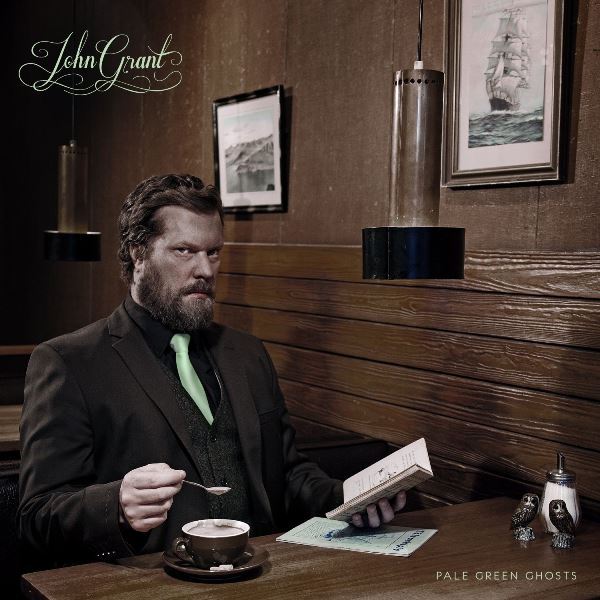
The beauty of the English language is its flexibility and the endless amount of vocabulary
――Iceland has been your home for almost four years. Was there a specific experience that made you feel that this should be your home?
The people I met here made me feel like this could be my home. It’s hard to explain. I can imagine being happy in lots of different places. But Iceland seems to be very good for me, I think, and I really like being here.
――You learnt Icelandic and worked on the English translation of Ásgeir’s album “In The Silence” (released worldwide in 2014). What was it like interpreting someone else’s lyrics as a translator?
It’s not really that hard as long as you have good communication with the composer when you don’t understand what is meant.
――You have spent a substantial amount of time travelling and living abroad, but are there any personality trait or sensibility that you attribute to being from Mid-West America?
I think people from the Mid-West are very down-to-earth and kind.
――There must be people who are discovering The Czars through your solo works. Which album would you suggest they listen to, to begin with?
I would suggest they listen to the compilation that came out last year or the year before. (“Best Of” released from Bella Union in 2014.) That gives the best overview of our work.
――You will be playing your very first show in Tokyo in April. Are there anything you are looking forward to doing in Japan?
I am VERY excited about my trip to Japan. I have been watching Japanese movies and listening to Toshinori Kondo for a long time and I think the language is one of the most beautiful in the world. So I am very fascinated by Japanese culture and have heard it is an amazing place. I really want to go record shopping and find Brain War (’91), one of my all-time favorite records by Toshinori Kondo* and IMA on vinyl. I’d also like to get out of the city and see the countryside a bit. Would also like to go to a mountain village and see what life is like there. AND I’d like to ride on a bullet train. I think it will be a very annoying trip because I won’t have time to do all the things I want to do and I don’t know when I’ll be back.
*Toshinori Kondo – Internationally active free-jazz trumpeter. Formed the band IMA in the 80s. Known for performing with wide-ranged artists, including Bill Laswell, John Zorn, Derek Bailey, Herbie Hancock and DJ KRUSH.
――As one of the foremost linguists in the music industry who’s mastered multiple languages , are there any Japanese words that piqued your interest?
I don’t know a lot of Japanese words yet, but I like the word for moon “tsuki” – I love the moon and I also heard that while Americans say they can see the “man in the moon”, the Japanese see the “rabbit making rice cakes”. Is that true?
――What would you say is the beauty of the English language?
I think the beauty of the English language is its flexibility and the endless amount of vocabulary. And also the way the language flows when sung is quite beautiful.
*John Grant will be returning to Japan this August 20th, 2016, to play the Hostess Club All Nighter
★ Find more details here


